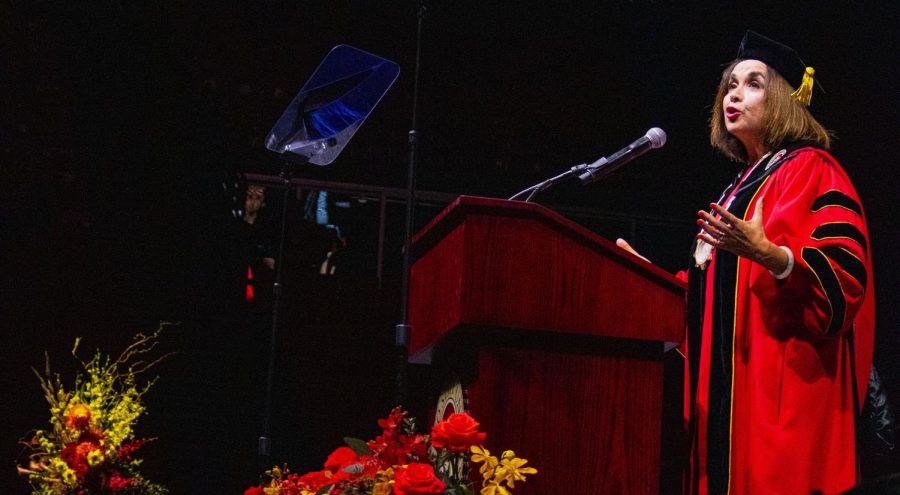There are times when I walk to class, and I pay close attention to the faces I pass. I focus closely on the movements they make, their eyes, their hands and their hair. There are times when I walk to class, and I look at the world I live in. I think about society and America as a whole. I realize there’s so many things around me, so many things to learn, to listen and to fight for. But something that must be spoken about is the education system.
I sometimes ask my mom to tell me stories about her years in high school. She would always talk about her home-economics classes, which included cooking and auto-shop classes. She said she had a cooking class everyday, and she would spend about an hour being taught how to cook a meal.
I look back at my mother’s lifestyle and as an educated college student, I think about whether these classes were really beneficial. Were these cooking classes going to help her after high school or help her get into college? She went to an impoverished high school located in a low-income community that was mostly Latinos and African Americans. These cooking and auto-shop classes took up time that could be used to learn math, science or reading.
Instead, schools decided to spend a great amount of time and money on classes that were only contributing to labor. To a certain degree, these home-economic classes were preventing several non-native speakers from growing as individuals or developing academically.
These classes confined minorities to perpetuate their same, traditional roles — cooking, cleaning, hands-on mechanics or auto-shop jobs. My mother came from Mexico where many children were taught to cook and clean from a young age, and I believe schools were simply reinforcing these jobs, prohibiting people of color from expanding and pressuring them to stay in the labor force.
Some people may argue that there are advantages that come along with home-economic classes including allowing students to learn certain life-tasks. Nonetheless, training students in manual arts or woodworking may restrict Mexican-American children from advancing in their education, and ultimately, helps feed the labor force and expand the marginalization of Mexican communities.
The education system needs to be reconstructed in order to help minorities. By deconstructing and forming a new school-system, many underrepresented students will have a greater opportunity to advance in their academics, and they can acknowledge that there are individuals in this country who sincerely care about educating them. The world will continue to exist with little change if institutions such as academia continue to perpetuate problematic beliefs.We need to stop being bystanders or individuals who helps feed a society that is corrupted and unethical. Nevertheless, I believe our generation is part of a revolution that will change our education system and country.









